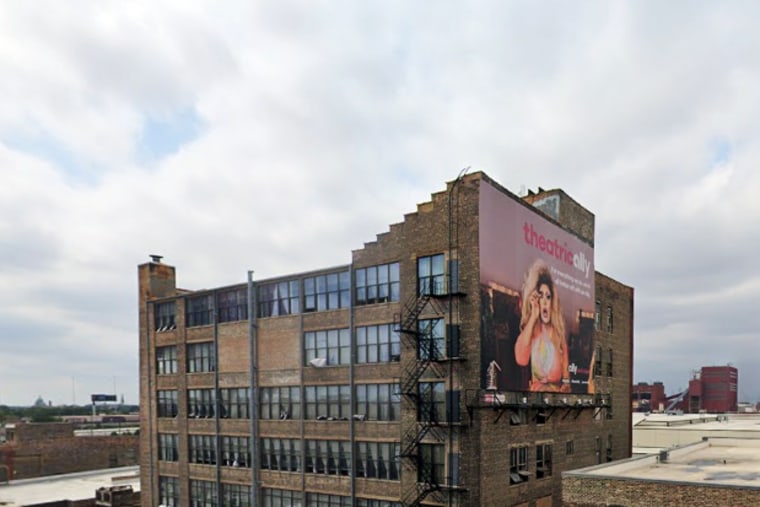Three more people at a migrant shelter in Chicago have been diagnosed with measles, bringing the city’s total to five cases so far this year.
The Chicago Department of Public Health reported on Monday that two adults at the shelter had been diagnosed and were in stable condition. That followed a Sunday announcement that a young child residing at the shelter had been hospitalized with measles but was in “good condition.”
The child attends Philip D. Armour Elementary School, a public school. The health department advised school-aged shelter residents not to attend school on Friday or Monday.
“Once a student’s vaccination status has been verified, students with confirmed vaccinations will be notified of the date to return to school,” Pedro Martinez, the CEO of Chicago Public Schools, said in a letter to families on Monday.
The school system said it is working with the health department to respond to the possible measles exposures.
“CPS provides multiple opportunities for vaccination as well as resources for community-based services and we work closely with families to help them be up-to-date on all vaccinations,” it said in a statement.
The initial measles case detected at the shelter was a young child, not school-aged, who has recovered and is no longer infectious, according to the health department.
Chicago’s first measles case this year, announced on Thursday, appears unrelated to the others: Health officials said the Chicago resident was not infectious as of Wednesday.
The Centers for Disease Control and Prevention said it is sending a team of experts to Chicago to support efforts to control the disease’s spread; they are expected to arrive on Tuesday.
The cases are the first in Chicago since 2019, though Cook County (which includes Chicago) recorded five cases in an apartment building last year.
Measles has spiked globally in recent months, partly due to a decline in vaccine coverage. The U.S. has recorded at least 45 cases this year, putting it on track to surpass 2023’s total of 58.
Pennsylvania tallied nine cases from December to January, and an outbreak in Florida swelled to 10 cases last month. However, the elementary school at the center of the Florida outbreak has not seen new cases since Feb. 16, according to the state health department.
Three cases have also been reported in California, and one child in Sacramento may have exposed around 300 people to measles at an emergency department on Tuesday.
The Chicago health department said vaccination teams have been screening people for measles at the migrant shelter, located in the city’s Pilsen neighborhood, and administering vaccines since Friday. Over the weekend, nearly all the shelter residents were assessed and more than 900 got vaccinated, the department said.

Shelter residents who are still unvaccinated, were recently vaccinated or are unsure of their vaccination status were instructed to quarantine for 21 days.
“We have advised all unvaccinated and newly vaccinated residents of the quarantine period but some of those residents have left the shelter, and I want to acknowledge that,” Dr. Simbo Ige, Chicago public health commissioner, said in a statement on Sunday.
The health department said Monday that some shelter residents are being relocated to alternative sites or hotel spaces depending on their immunity status and quarantine requirements.
Measles, mumps and rubella (MMR) vaccines will also be available to migrants in other shelters, officials said, and to migrants arriving in Chicago as part of their intake process.
If an unvaccinated person is exposed to measles and hasn’t developed symptoms yet, an MMR vaccine can ward off infection if administered within 72 hours. A preventive injection called immune globulin can be given within six days of exposure.
Measles is highly contagious: An infected person can spread the virus to up to 90% of the people close to them if those contacts aren’t immune, and people can remain contagious for roughly eight days.
In his letter, Martinez advised Chicago parents to make sure their kids’ vaccine records are up-to-date at their schools. The Illinois Department of Public Health’s Vax Verify tool allows parents to check vaccination records for those immunized in the state from 2007 onward.
Data from the Illinois State Board of Education indicates that hundreds of Chicago schools had less than 95% coverage for the MMR vaccine in the 2022-2023 school year.
Vaccination rates in schools have declined nationwide. The share of U.S. kindergartners who had received two doses of the MMR vaccine was 93% in the 2022–23 school year, down from 94% in the 2020–21 year, and 95% for nearly 10 years before that.
Children in the U.S. are expected to get their first measles vaccine between 12 and 15 months, and their second between 4 and 6 years old. One dose is 93% effective and two doses are 97% effective, according to the CDC.
Measles symptoms include a high fever, cough, conjunctivitis (pink eye) and runny nose. Two to three days after symptoms start, people usually notice tiny white spots in their mouth. Between days three and five, blotchy rash often develops from head to toe.
Symptoms typically last 10 days unless severe complications arise — these can include swelling of the brain, pneumonia or secondary bacterial infections.
Roughly 1 to 3 out of every 1,000 children infected with measles die from respiratory and neurological complications. In rare cases, measles can lead to blindness or long-term vision problems.






